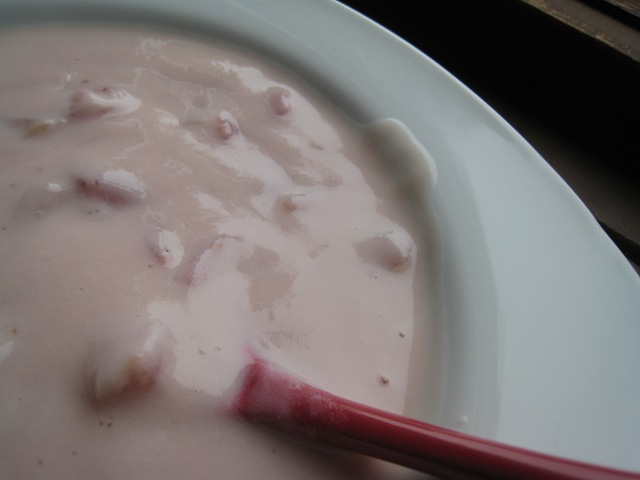In recent years, the relationship between our gut health and overall well-being has gained significant attention. Probiotics, often referred to as “good bacteria,” have emerged as key players in promoting digestive health and boosting the immune system. But can these tiny microorganisms also hold the power to alleviate allergic reactions? The intriguing connection between probiotics and allergies has captured the interest of scientists and health enthusiasts alike. In this article, we delve into the world of probiotics and explore their potential role in reducing allergic reactions.
Understanding Allergies: A Complex Immune Response
Allergies are a result of the immune system’s hypersensitivity to substances that are usually harmless, such as pollen, pet dander, or certain foods. When the immune system encounters these substances, it triggers an allergic reaction, leading to symptoms like sneezing, itching, hives, and in severe cases, anaphylaxis. The prevalence of allergies has been on the rise in recent decades, posing a significant public health concern. Researchers are now investigating whether modulating the gut microbiota through probiotics could provide a novel approach to managing allergic reactions.
The Gut Microbiota-Immune System Connection
The human gut is home to trillions of microorganisms, collectively known as the gut microbiota. These microbes play a crucial role in maintaining gut health, aiding digestion, and even influencing our immune responses. Recent studies have suggested that the composition of the gut microbiota might play a role in the development and modulation of allergies. This is where probiotics come into the picture.
Probiotics: Nature’s Tiny Warriors
Probiotics are live microorganisms that confer health benefits when consumed in adequate amounts. They are commonly found in fermented foods like yogurt, kefir, sauerkraut, and kimchi, as well as in probiotic supplements. Probiotics have been studied extensively for their positive effects on gut health and immune function. They work by promoting a balanced gut microbiota, enhancing gut barrier function, and modulating immune responses.
The Allergy-Immunity Connection: What Science Says
Research into the potential of probiotics to reduce allergic reactions is still in its early stages, but promising findings have emerged. Some studies suggest that early exposure to diverse microbial communities, including those found in probiotics, could help train the immune system to differentiate between harmless substances and potential threats, thus reducing the likelihood of allergic responses. Additionally, certain probiotic strains have been shown to regulate immune cells and cytokines involved in allergic reactions, potentially leading to reduced inflammation and symptom severity.
A study published in the journal “Pediatrics” examined the effects of probiotics on the prevention of eczema, a common allergic skin condition. The researchers found that infants who received a specific probiotic strain had a reduced risk of developing eczema compared to the control group. While these results are promising, it’s important to note that the effects of probiotics can vary depending on the specific strain, dosage, and individual factors.

Choosing the Right Probiotics for Allergies
Not all probiotics are created equal, and not all may offer the same benefits when it comes to allergies. To make informed choices, it’s essential to consider the following factors:
- Strain Selection: Look for probiotic strains that have been specifically studied for their potential anti-allergic effects. Bifidobacterium lactis, Lactobacillus rhamnosus, and Lactobacillus acidophilus are examples of strains that have shown promise in allergy-related research.
- Diversity: A diverse gut microbiota is associated with better health outcomes. Opt for probiotic products that contain a variety of strains to promote a balanced microbial community.
- Dosage: The effectiveness of probiotics can depend on the dosage. Consult with a healthcare professional to determine the appropriate dosage for your specific needs.
- Combination with Prebiotics: Prebiotics are non-digestible fibers that nourish the beneficial gut bacteria. Some products combine probiotics with prebiotics to enhance their effects.
- Individual Factors: Keep in mind that individual responses to probiotics can vary. What works for one person may not work for another, so it’s essential to be patient and observe how your body responds.
Conclusion
While the potential of probiotics to reduce allergic reactions is an exciting area of research, it’s crucial to approach the topic with a balanced perspective. Probiotics have shown promise in studies related to allergies, but more research is needed to fully understand their mechanisms of action and their efficacy in different allergic conditions. If you’re considering incorporating probiotics into your health regimen, it’s advisable to consult with a healthcare professional, especially if you have allergies or underlying health conditions.
As the scientific community continues to unravel the intricate relationship between our gut microbiota and immune system, probiotics remain a fascinating avenue for potential allergy management. Whether they ultimately become a mainstream approach to reducing allergic reactions or not, the insights gained from studying probiotics are undoubtedly contributing to our broader understanding of health, immunity, and the intricate balance within our bodies.





